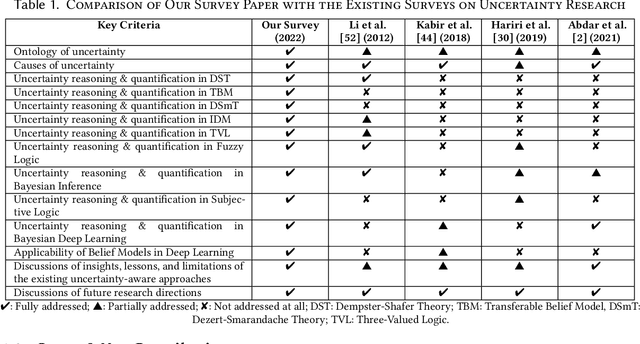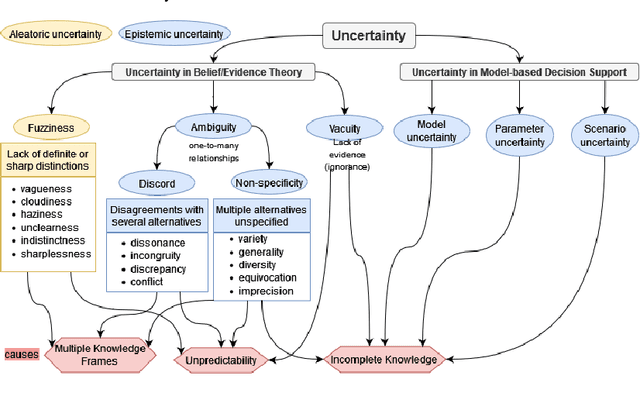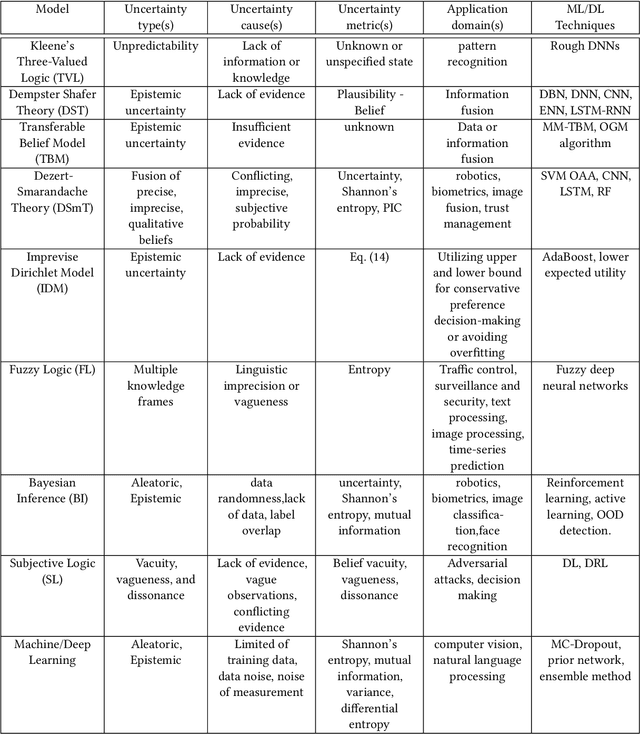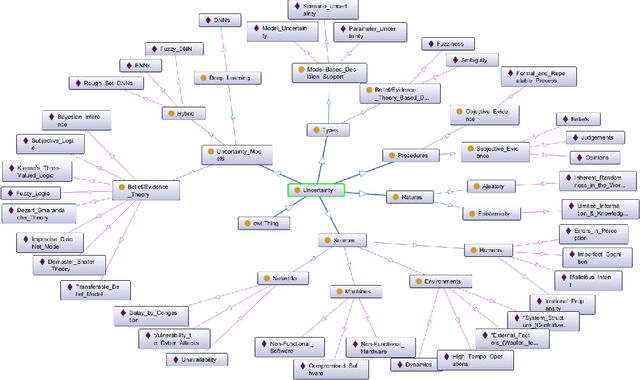A Survey on Uncertainty Reasoning and Quantification for Decision Making: Belief Theory Meets Deep Learning
Paper and Code
Jun 14, 2022



An in-depth understanding of uncertainty is the first step to making effective decisions under uncertainty. Deep/machine learning (ML/DL) has been hugely leveraged to solve complex problems involved with processing high-dimensional data. However, reasoning and quantifying different types of uncertainties to achieve effective decision-making have been much less explored in ML/DL than in other Artificial Intelligence (AI) domains. In particular, belief/evidence theories have been studied in KRR since the 1960s to reason and measure uncertainties to enhance decision-making effectiveness. We found that only a few studies have leveraged the mature uncertainty research in belief/evidence theories in ML/DL to tackle complex problems under different types of uncertainty. In this survey paper, we discuss several popular belief theories and their core ideas dealing with uncertainty causes and types and quantifying them, along with the discussions of their applicability in ML/DL. In addition, we discuss three main approaches that leverage belief theories in Deep Neural Networks (DNNs), including Evidential DNNs, Fuzzy DNNs, and Rough DNNs, in terms of their uncertainty causes, types, and quantification methods along with their applicability in diverse problem domains. Based on our in-depth survey, we discuss insights, lessons learned, limitations of the current state-of-the-art bridging belief theories and ML/DL, and finally, future research directions.
 Add to Chrome
Add to Chrome Add to Firefox
Add to Firefox Add to Edge
Add to Edge